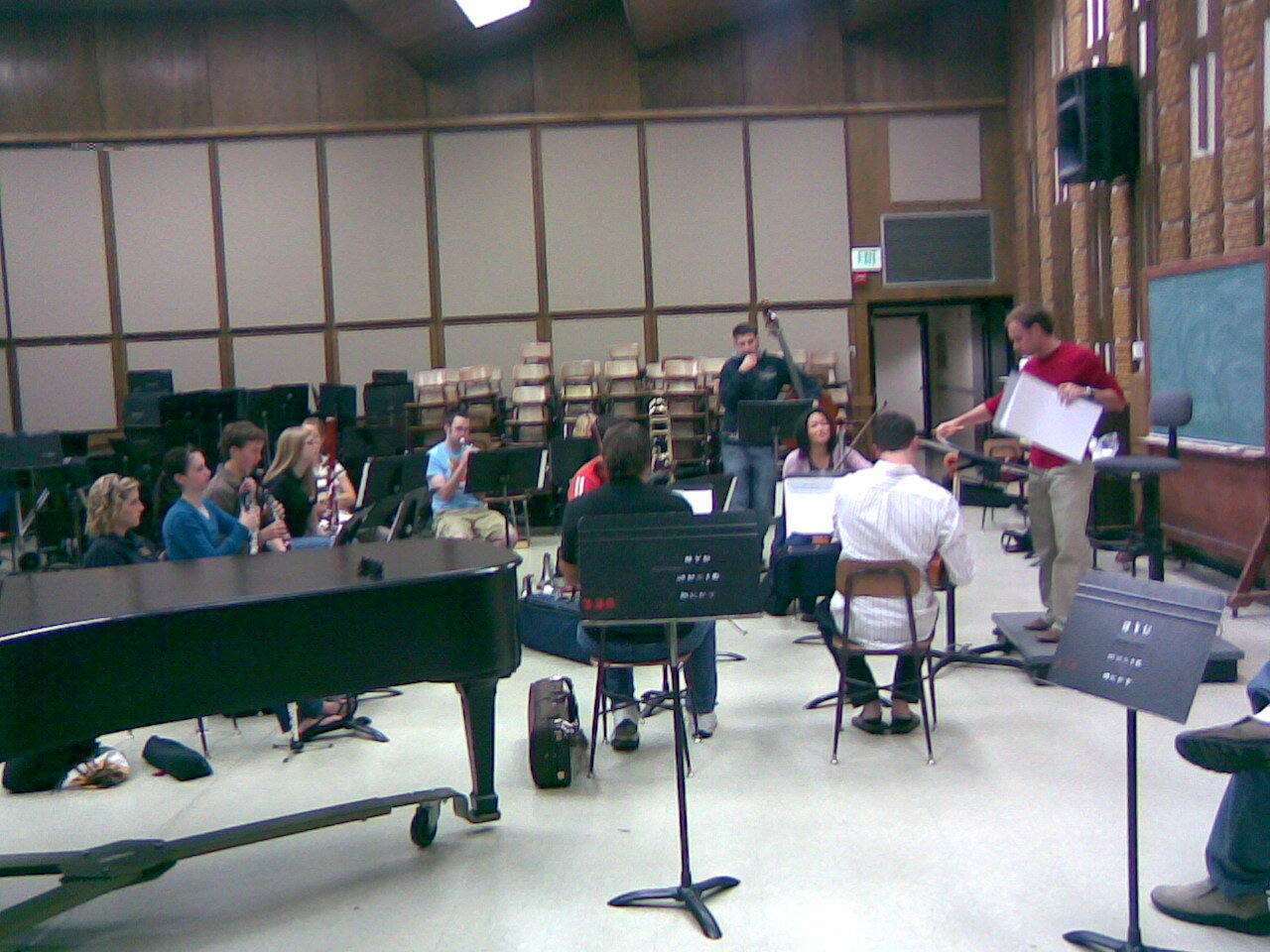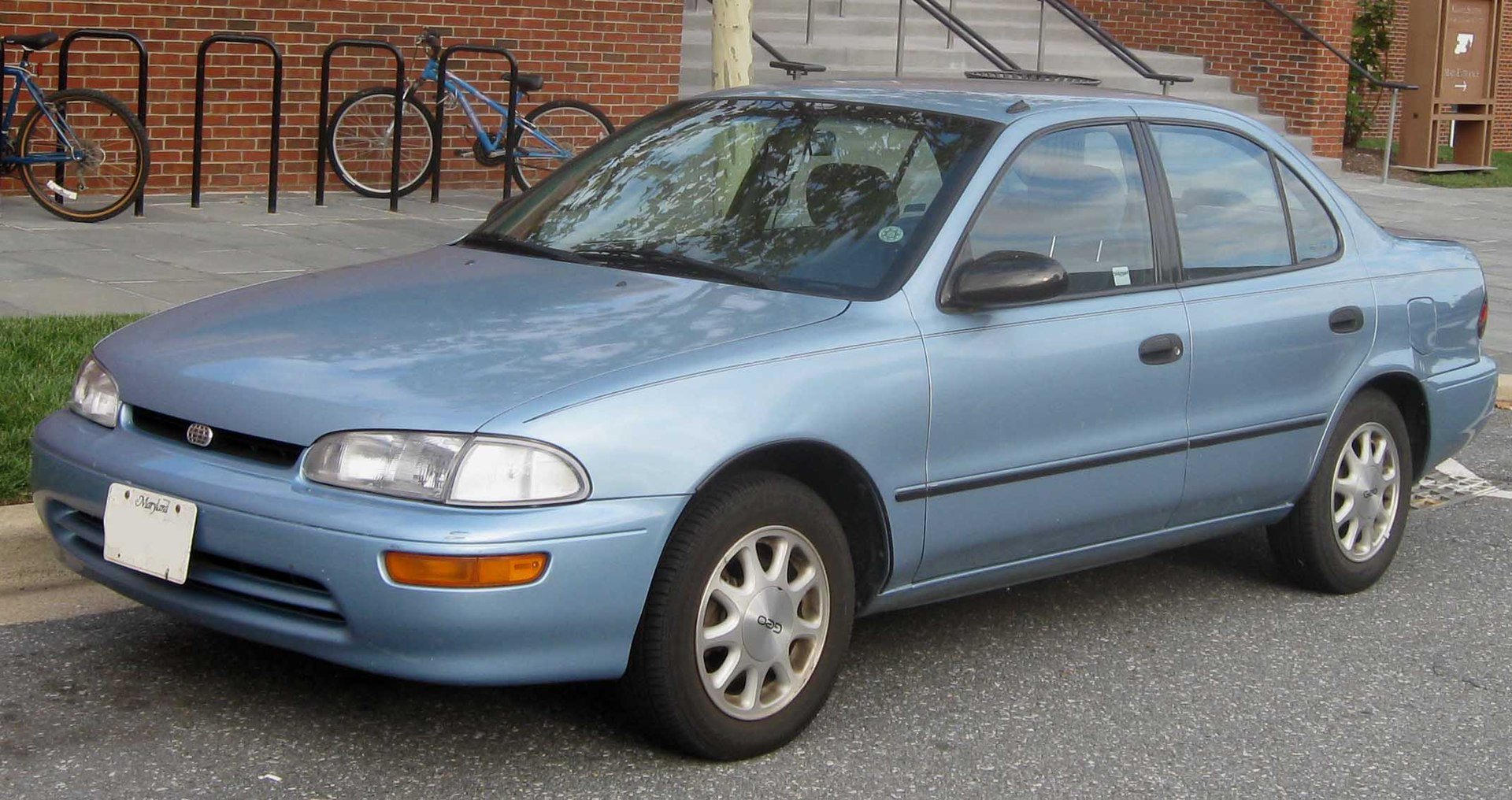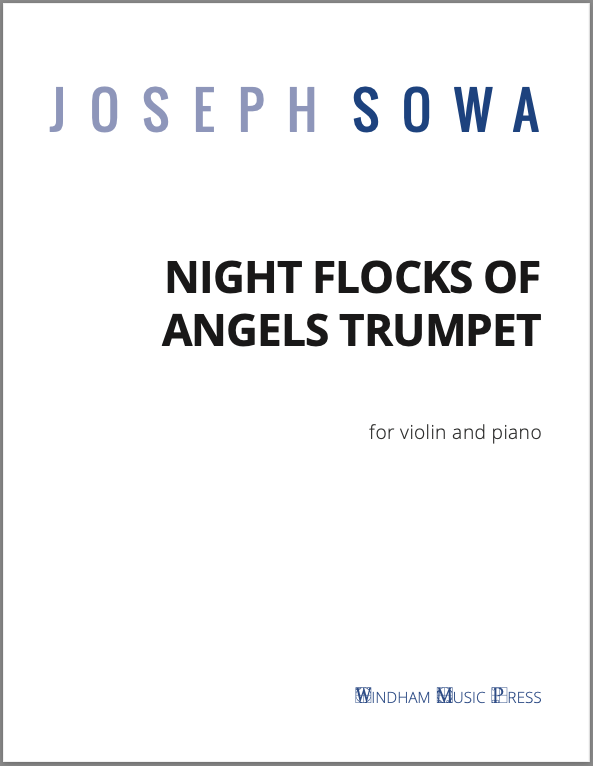Why Did the Composer Cross the Road?
It shouldn’t take a car wreck to inspire you to write a beautiful Adagio—but that’s what it took for me to write my violin and piano piece “night flocks of angels trumpet.”
Here’s what happened:
My junior year of college I was at my limits.
I was taking a heavy course load, working 20 hours a week in two jobs, and I had just broken up with my first girlfriend. It was a stressful time. But I had big dreams. And I was determined to fulfill them.
Lev Ivanov conducts a rehearsal for the “Fall Collection” concert and recording.
My composer friends and I had gotten a substantial grant to write and record seven new pieces for sinfonietta, then publish the recordings. This ambitious project, which we called “The Fall Collection,” would help us get noticed by graduate schools and major ensembles. It would be our ticket to career success.
And, stresses aside, it was all going according to plan.
Until I crashed my brother’s car . . .
The Car Wreck
It was the day of our big recording session. I was crossing a major four-lane road to get to our recording engineer who lived a few blocks away on the other side.
I saw the oncoming car off in the distance—and I was convinced not only that they also saw me, but also that I would have plenty of time to cross before them.
My brother had a Geo Prizm much like this one. “Had” being the key word…
Instead, I got a firsthand lesson in what a side-on, 45-mph collision feels like.
My car went spinning, I swore, and we finally skidded to a stop 100 feet down the road.
I was fine. But the car—and my pride—were totaled.
I sure wasn’t going to make it to the recording session on time. (Did I mention that this was my brother’s car I was borrowing?)
Atop the precarious balance of all my other obligations and stresses, this was the final, backbreaking blow. It sucked out all the oxygen from the fire of my ambitions. With all my commitments, it was months before I could slow down and reassess my situation.
My world became gray, and my work, a drudgery.
The Hardest Piece I Ever Wrote
Two years later, I started writing a piece that directly responded to these anxieties.
At the time, I hadn’t made that connection. This was the early 2010s, and it still wasn’t cool in academia to write music that was explicitly “about” something. As I understood it, great music had to be allusive, oblique, and even abstract. Heaven forbid you give the listener ideas of what they might think or feel when they’re listening to your music.
Myself, conducting the second performance of A Field Guide to Natural History, which was commissioned by the Barlow Endowment for Music Composition — and was, intuitively, an artistic response to my previous car crash.
So instead, in my mind, I thought I was just writing a series of connected miniatures. Formally, I was inspired both by Thomas Adès’s string quartet Arcadiana and Brian Wilson’s album Smile.
It was my first major commission, from the Barlow Endowment, and it was to write a 20-minute piece for double bassist Eric Hanson, along with a trio of saxophone, piano, and percussion.
It was the most difficult piece that I ever wrote:
First, because its ambition greatly outstripped my technical abilities.
Second, because I was laboring under a lot of toxic assumptions about composition.
Third, and most of all, the piece was an intuitive, artistic response to the car crash and its larger situation. And because it was an intuitive response, I had no conscious idea why writing it felt so emotionally heavy.
In hindsight, I now see that the different movements were all studies in various forms of anxiety. I titled each of them with intricate puns about natural history. The whole series of troubled movements led to a catharsis in the movement called “heaving and dearth.”
Only then, finally, came the one emotionally hopeful movement in the entire piece: “night flocks of angels trumpet.”
But that movement wasn’t so much about real hope as much as it expressed a healing fantasy—this dream that the career and the relationships I wanted would come after I put in enough of the right work. The dream towards which I was working so feverishly right before the car wreck.
It consists of a lyrical, lullaby-esque melody over lush, rocking harmonies. Though beautiful, the music feels sad and ephemeral, which is why, in the full piece, the concluding movement that follows “night flocks” is entitled “rainbows end” (without the apostrophe).
After a couple of performances, the full piece hasn’t yet been performed again, but that “night flocks” movement took on new life transcribed as a solo for violin and piano.
I made the transcription for a friend’s graduate violin recital. And it’s received several other performances over the years, leading to this most recent one with Dominic Salerni and Olga Kirpicheva.
Lessons from the Crash
I’m telling you this story for several reasons:
First, if you go to Sunday’s concert, I want to give you a context for what you’re listening to. I could tell you, “This is a lullaby from a longer piece about natural history,” but any summary like that would ultimately be glib and one-dimensional.
It’s much easier for listeners to connect with this piece—or any piece of music, including your own—when you know the stories behind it.
Second, I want to argue for the power of stories.
Even in 2024, there are still many composers, who labor under the assumption that their music should “speak for itself.“
That’s nonsense.
“Detest bad music but do not make light of it. . . . Its place, nonexistent in the history of art, is immense in the history of the emotions of societies.” — Marcel Proust
As Marcel Proust and Dana Gioia have both said, the ultimate reason everyone cares about music is sentimental.
Sure, we may love the sound of a piece. We may appreciate how well it fulfills its function (e.g., in a film or during a workout). We may have other aesthetic reasons to value “this piece” over “that one.” But these attitudes are just details to the big picture: how music is a part of our personal stories.
As composers, it’s our job to tell stories: Why did we write this piece? How did we write it? What inspired it? What else does it remind you of? What can the piece do for listeners or performers? Why? If you want to write something oblique and mysterious, that’s fine—but that too is a story.
When we don’t tell these stories, we are essentially saying, “I refuse to help you figure out why my piece matters to you.”
Lastly, the stories I shared above explain much of why I founded the Wizarding School for Composers. Together, those experiences taught me that I needed to find a way to lower the emotional cost of creating art.
If writing music was truly as stressful and fraught as it felt to me in those years, it would not be worth doing. I had better things to do with my life than sacrifice my happiness on the altar of new music.
Anyone who’s been in a graduate music composition program knows that I’m hardly the only composer who’s experienced this struggle. Many of these folks end up quitting music. For many of them, it’s the right choice.
But what I hope for more composers going forward is that the choice to stay or leave music doesn’t come down to whether they want to live in unending artistic stress.
I founded the Wizarding School because I discovered, and I firmly believe:
Writing music can be fluent and joyful.
Your music matters because you matter.
The magic of creating and sharing music with others isn’t limited to a talented few who are lucky to win all the opportunities.
Most of all, it doesn’t have to take a car wreck and more than a decade of your life to learn these things.






